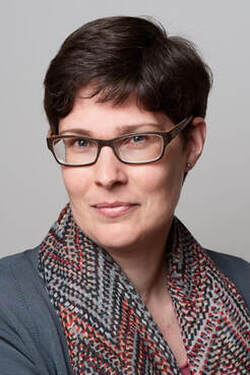
Master of Ceremonies
Nienke de Deugd
Nienke de Deugd received her education at the University of Groningen, where she studied both History and International Relations & International Organization. Upon completion of her PhD research (about the development of a system of democratic and civilian oversight over the armed forces in Ukraine and the country’s relationship with NATO) Nienke joined the IRIO department. She currently teaches in both the Ba programme (History of International Relations 1 and History of International Relations 2, Core Module, and Bachelor’s Thesis) and in the Ma Programme (Master’s Thesis), in Euroculture, and in the Honours College. Nienke’s research focuses on processes of transformation and integration in post-Cold War Europe, with a special focus on the former Soviet republics, on the European Neighbourhood Policy/Eastern Partnership, and on relations with the Russian Federation.
Speakers
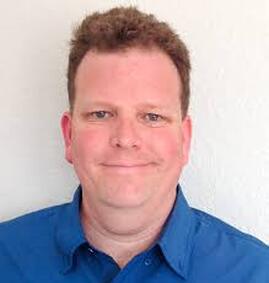
Ben Smith
Driven by his insatiable curiosity and love of science and anything that is related to space, Ben Smith will be diving into the topic of permanent settlement on the moon with us. This America based lunar enthusiast is the director of the Moon Society Board and the Society’s Membership Coordinator. This organization is committed to permanent settlement on the moon and building a thriving cislunar economy through actively working on a social and political environment where lunar development projects can thrive and be successful. They believe that using the local resources can improve the quality of life for all humanity on earth and beyond. Furthermore, Ben Smith also owns and is a principal scientist at Lunar Homestead, where he works on tech that lunar settlers will need to thrive. After taking a decade-long break from space until 2018, he is excited to share his knowledge about space and the moon with you!
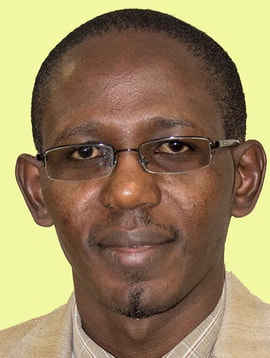
Fidèle Ingiyimbere
Have you ever wondered about the social and political repercussions of foreign intervention? Could humanitarian intervention ever be truly justified if it is under the guise of maintaining colonial relations? During the Clio Conference, Professor Fidèle Ingiyimbere will shine a light on these questions with an interactive workshop on foreign intervention as a neo-colonial practice. Fidèle Ingiyimbere currently works as a Professor of Philosophy at the Arrupe Jesuit University in Harare, Zimbabwe. The professor has an extensive academic background and often combines his expertise in philosophy with postcolonial theory. In recent years, the professor has released numerous articles on this topic, criticizing humanitarian intervention, Just War theory as well as the imperial notion of Human Rights. In 2017, Professor Ingiyimbere released his own book entitled “Domesticating Human Rights: A Reappraisal of their Cultural-Political Critiques and their Imperialistic Use”. This April, the professor will share his thoughts and expertise regarding the hidden forms of colonialism in the 21st century with you. All in all, this promises for a very interesting lecture and discussion on foreign intervention as neo-colonial practice.
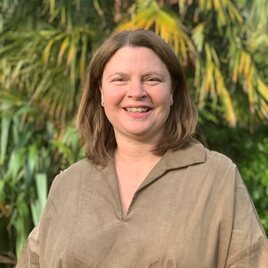
Doreen Boyd
Doreen Boyd did a bachelor geography at the University of Wales. Following this, she did a teacher training and a PhD. She has a lot of experience with giving lectures at multiple universities. Now, she works at the University of Nottingham as Associate Professor and Reader. Her research is focused on the use of remote sensing systems to understand how ecosystems work, in particular rainforests, peatlands, boreal forests and mountains. Furthermore, she leads the University of Nottingham’s Right Lab’s Data and Measurements Programme. For the conference she will discuss her research for which she uses satellite images in remote sensing to map slavery from space for the first time.
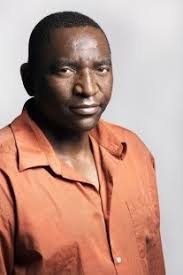
Patience Kabamba
Dr. Patience Kabamba is a Congolese lecturer and author who has Masters degrees in Philosophy and Economic Development and a PhD in cultural anthropology. He now teaches at the National Pedagogic University of Kinshasa after having run the anthropology program at the Utah Valley University. His main research focus is on the dynamics of power and global political and economic governance. Dr. Kabamba furthermore used to be a consultant for UNDP and holds a position as World Bank expert on the structures of power and accountability in the Congo.
His expertise and personal experience make him the perfect speaker on one of the most prime examples of colonialism in the 21st Century: the Congo Coltan Crisis. Dr. Kabamba will provide the background information on the ongoing crisis and shine a light on the Western involvement in its emergence and prevalence, while giving the participants a chance to engage with him in a live workshop.
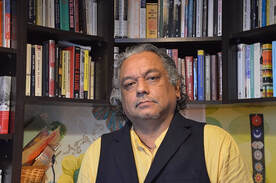
Bobby Banerjee
Bobby Banerjee is a professor of management and Associate Dean of Research & Enterprise at Cass Business School in London. His primary research areas are corporate social irresponsibility, sustainability and climate change with a touch of critical management studies, Indigenous ecology, resistance movements and postcolonial studies. He has published extensively in leading scholarly journals and is the author of the book ‘Corporate Social Responsibility: The Good, The Bad and The Ugly’. For this year’s Conference, Bobby Banerjee will elaborate on the concept and implications of Corporate responsibility in the light of (post)colonialism.
Bobby Banerjee is a professor of management and Associate Dean of Research & Enterprise at Cass Business School in London. His primary research areas are corporate social irresponsibility, sustainability and climate change with a touch of critical management studies, Indigenous ecology, resistance movements and postcolonial studies. He has published extensively in leading scholarly journals and is the author of the book ‘Corporate Social Responsibility: The Good, The Bad and The Ugly’. For this year’s Conference, Bobby Banerjee will elaborate on the concept and implications of Corporate responsibility in the light of (post)colonialism.
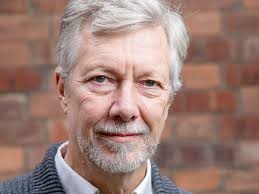
Kevin Bales
Kevin Bales is Professor of Contemporary Slavery, and Research Director of the Rights Lab at the University of Nottingham. Bales was also a Co-Founder, and previously president of Free the Slaves, the sister organization of Anti-Slavery International, in Washington DC. In his Pulitzer-nominated book, Disposable People: New Slavery in the Global Economy, Bales, by going undercover to meet slaves and slaveholders, exposed how modern slavery penetrates the global economy. Bales served on the Board of International Cocoa Initiative for 13 years and he also served as a consultant to the United Nations Global Program on Trafficking of Human Beings on the formulation of policy on slavery and human trafficking. Currently he is the Principal Investigator for the Antislavery Usable Past project and he serves on the Board of Directors of the Freedom Fund that aims to lead the eradication of modern slavery.
He published To Plead Our Own Cause: Personal Stories by Today’s Slaves with Zoe Trodd; and with Ron Soodalter The Slave Next Door: Human Trafficking and Slavery in America Today, the first full exploration of contemporary slavery in the United States, an exposé and plan to make America slave-free for the first time in its history. In 2016 Bales published Blood and Earth: Modern Slavery, Ecocide, and the Secret to Saving the World, which became a breakthrough work that identified modern slavery as a major contributor to global climate change.
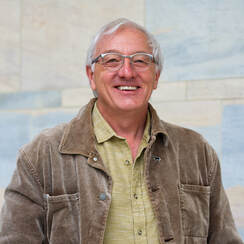
Colin Samson
Colin Samson is a sociologist and anthropologist who currently teaches about and does research to human rights and cultural diversity related subjects at the University of Essex. Since 1994, Samson has been working on a long term research project with the indigenous Innu people of the Labrador-Quebec peninsula. The book he wrote about this that was honored with the Pierre Savard Award is called ‘A Way of Life That Does Not Exist: Canada and the Extinguishment of the Innu’ and explained the effects of forced assimilation. Moreover, he was involved in the production of two films about the recent and historical experiences of the Mushuau Innu. On the 30th of April, Samson will go into more depth about ongoing types of colonialism and hierarchical human rights. For this, he will draw up on his most recent book ‘The Colonialism of Human Rights: Ongoing Hypocrisies of Western Liberalism’.
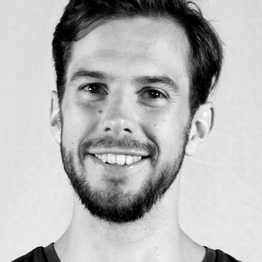
Wouter Oomen
Wouter Oomen is a PhD candidate at the University of Utrecht whereby his (provisional) dissertation is titled “Common Humanity in Humanitarian Communication.” He has a BA and MA is Media Studies. Mr. Oomen has taught at several universities in the Netherlands, including the University of Amsterdam, Groningen and Utrecht. Furthermore, he is the founding coordinator of the “Culture, CItizenship and Human Rights” PhD community combining members from the faculties of Humanities, Social Sciences and Law at Utrecht University. For our conference, he has prepared a workshop on the topic of “Development Discourse: Colonialist Roots of Humanitarian Communication.”
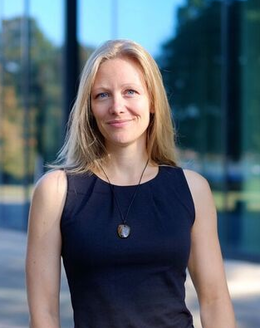
Sanne van der Lugt
Dr. Sanne van der Lugt is a Research Associate at the Clingendael Institute. She obtained a MSc in Culture, Organization and Management at the University of Amsterdam and an MA in International Studies at the University of Stellenbosch. She received her PhD at the University of Bremen basing her dissertation on Chinese investment in Africa. Furthermore, her research is focused on the consequences of China’s reemergence as a global power, especially China’s economic activities in Africa. For the purpose of the conference, she will engage with our participants in a workshop on the topic “Political, Economic, and Social Implications of the Digital Silk Road into East Africa: The Case of Ethiopia.”
|
Sophie van den Elzen Sophie van den Elzen is a researcher at the University of Utrecht where she teaches the BA program English Languages and Culture and Literary Studies. She also received her Bachelor at that university before pursuing her further education at the University of California and University of Toronto. IN 2020, she completed her PhD dissertation on the cultural memory of slavery and abolition in the 19th century transnational movement for women’s rights. Van den Elzen will combine colonialism in feminism in her talk where she will explore how women of color have challenged the colonial mindset between the 19th century and today. |


